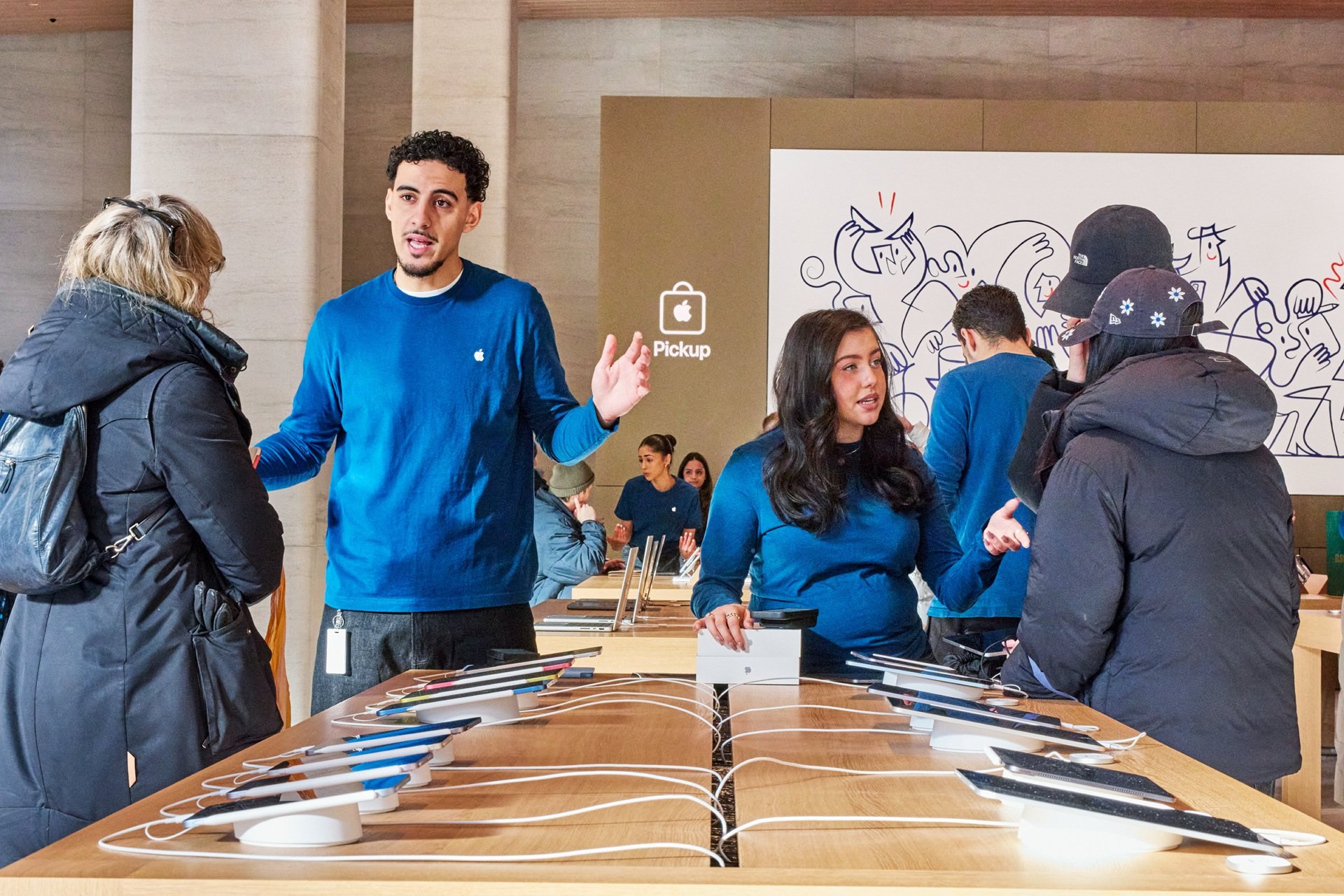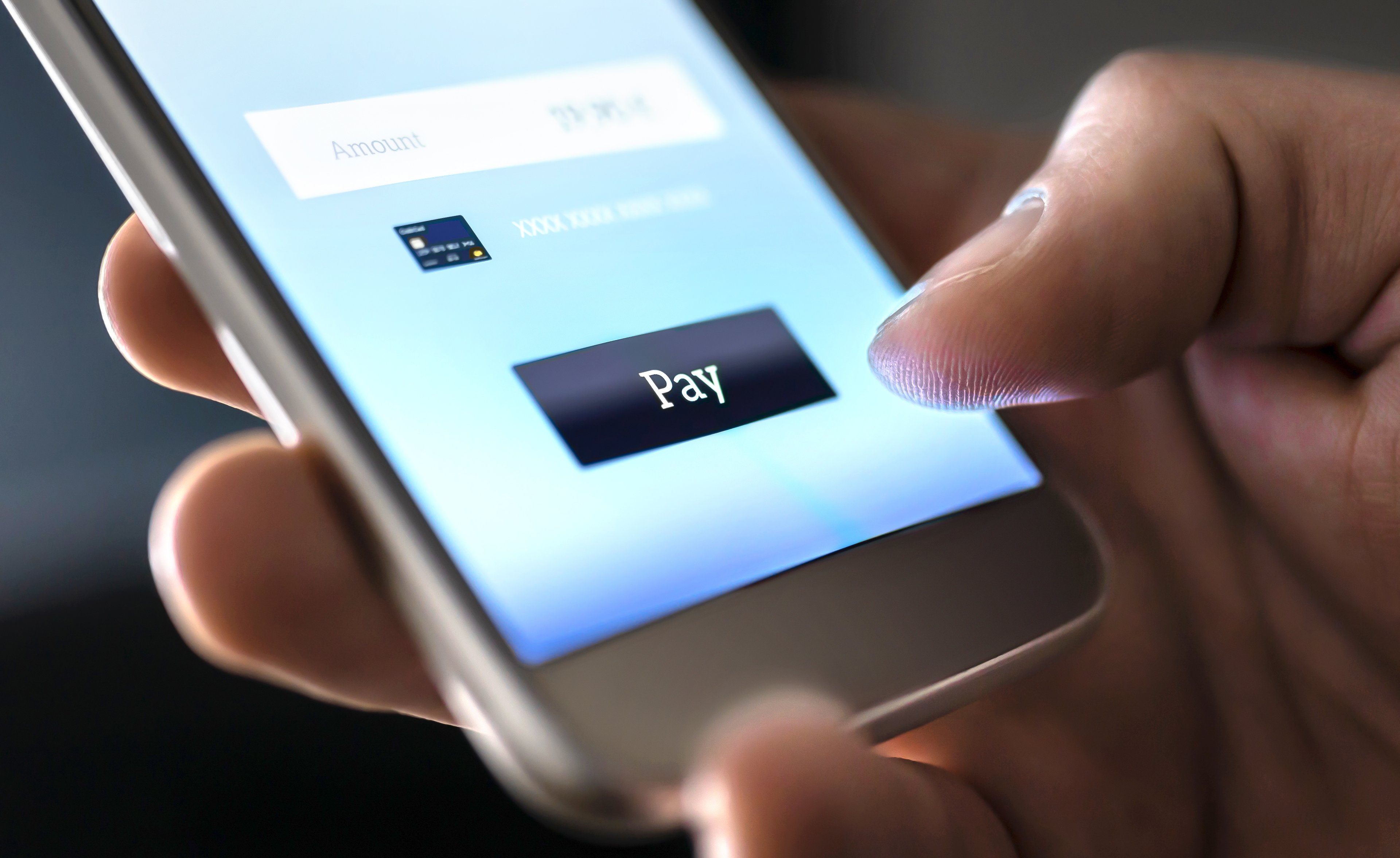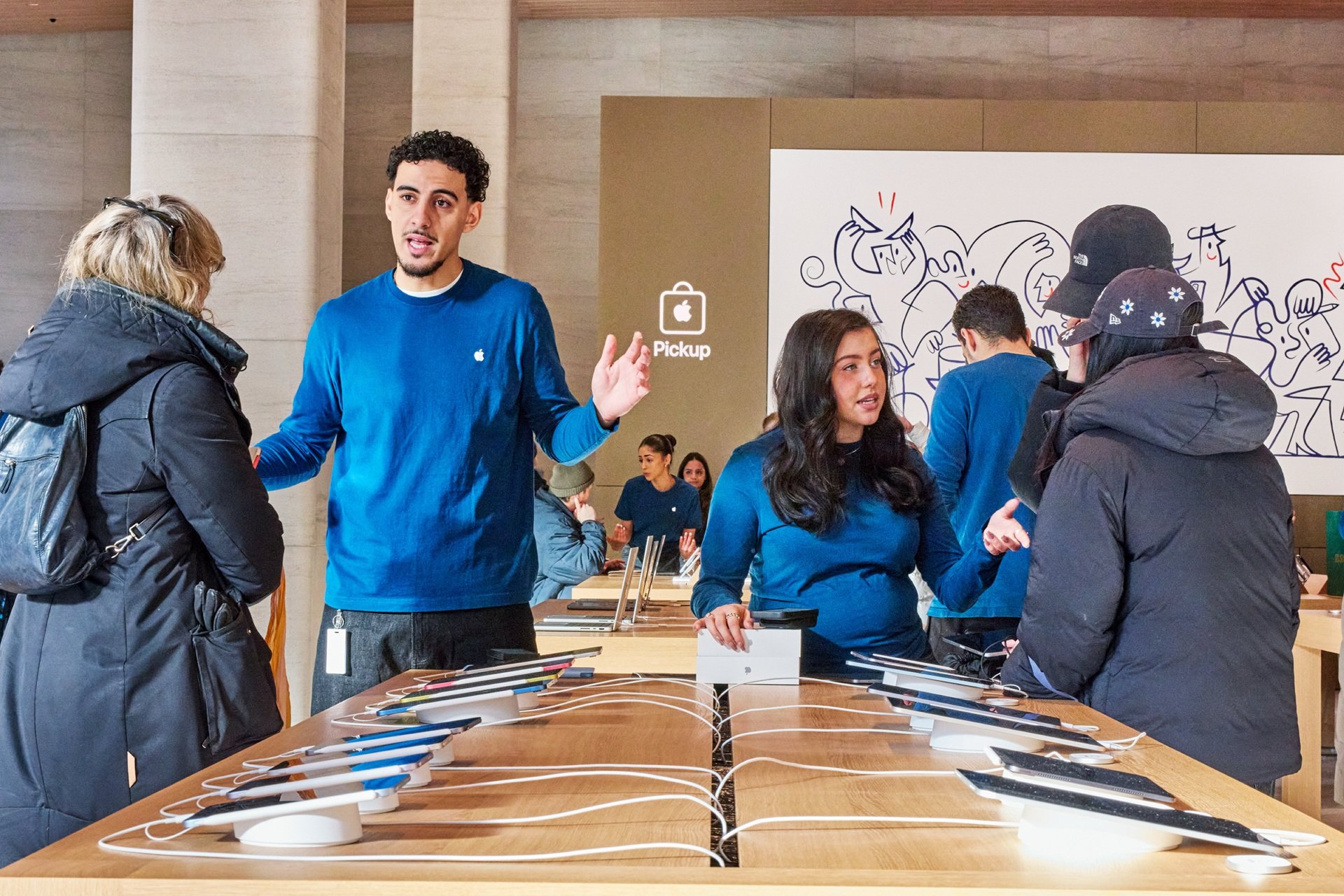The past few days have sent the stock market reeling as investors have become increasingly concerned about the ongoing effect of the coronavirus, officially designated COVID-19. A number of high-profile companies have warned about the short-term effect of the health crisis on their operations, causing stocks to fall even further during the recent wholesale market meltdown which just closed out its third day.
While it would be easy to dismiss these companies in the face of their current problems, history has shown that to be a costly mistake.
With that in mind, let's look at why investors should consider buying Apple (AAPL +2.54%), Starbucks (SBUX +4.13%), and Disney (DIS +3.67%), even as the slumping market continues.

Image source: Apple.
An Apple a day
The biggest effect of the coronavirus outbreak has been in China, hitting Apple with a double whammy. Not only are many of the company's products manufactured in the Middle Kingdom, but the country represents Apple's second-largest consumer market, behind only the U.S. The company was forced to close its retail stores in China in response to the health crisis, though it has since reopened 30 of the 42 locations. There's little doubt that Apple will feel the pain over the short term. Pulling back and focusing on the longer timeframe, however, shows a company positioned to thrive.
To start out 2020, Apple reported record first-quarter results. There were contributions from across the company's product lines, with the biggest coming from the iPhone. Revenue grew to a record $91.8 billion, up 9% year over year, on strong demand for iPhone 11 models. The company also saw record growth from both its services and wearables, home, and accessories segments, which grew 17% and 37%, respectively.
That's not the only reason to buy Apple stock before the coronavirus-induced panic subsides. Apple's trading at a discount of nearly 11% off its recent high. The company also pays a dividend that currently yields about 1%, while using less than 25% of profits to fund the payout. If history is any indicator, the company is set to announce the next dividend increase in April during its next quarterly earnings report. It's also worth pointing out that Apple is buying back boatloads of stock, reducing its share count by 25% over the past five years.
Apple will continue to thrive in the coming years. Wedbush analyst Daniel Ives said as much in a note to clients earlier this month: "We believe this is a more of a timing issue rather than an extended supply/demand issue for iPhones globally and does not change our longer term bullish thesis."

Image source: Starbucks.
China's switching from tea to coffee
Starbucks has tied much of its future growth plans to opening stores in China, but recently sounded the warning bell over the outbreak. Late last month, the coffee purveyor closed nearly half its locations in China -- 2,000 stores in all -- to help limit the spread of coronavirus. On the first-quarter conference call, CEO Kevin Johnson said the company is "navigating a very dynamic situation."
The global health crisis is certainly reason for concern, but from an investing standpoint it will soon be viewed as short-lived.
In the first quarter, Starbucks generated revenue of $7.1 billion, up 7% year over year, producing diluted earnings per share of $0.74, up 21%. Other metrics were equally strong, with comparable store sales climbing 5%, driven by a 3% increase in average ticket and a 2% increase in comparable transactions.
While a chunk of the company's future growth may hinge on China, it's important to remember that the majority of Starbucks' current business is transacted in the Americas -- accounting for nearly 71% of the company's revenue, while China represents just 10%.
Starbucks is trading at a 20% discount to its recent high and will continue to pay shareholders while they wait for the health crisis to run its course. The dividend currently yields about 2% and the company is using less than 48% of profits to fund the payout, leaving plenty of room for future increases. It has also repurchased copious amounts of stock, with shares declining by 22% over that past half decade.

Shanghai Disneyland. Image source: Walt Disney.
The happiest shareholders on Earth
Disney announced last month that to help stop the spread of coronavirus it was forced to close two of its theme parks, Shanghai Disneyland and Hong Kong Disneyland, during what is normally peak season -- Chinese Lunar New Year. The company said the move will hit the bottom line to the tune of about $175 million.
That isn't the only thing on the minds of Disney shareholders. Long-time CEO Bob Iger announced this week that he would be stepping down, while retaining his role as executive chairman until his current contract ends in late 2021. Iger is passing the baton to Bob Chapek, who successfully led Disney's parks, experiences, and products segment, so he's leaving the company in good hands.
Even in the face of these challenges, Disney is well-positioned to rebound once the health crisis has passed.
During Q1, revenue grew 36% year over year to $20.9 billion. Diluted earnings per share declined 37%, primarily the result of the integration of Fox Studios and expenses related to the recent launch of its flagship streaming service Disney+.
Speaking of Disney+, the debut was a blockbuster hit, attracting 28.6 million subscribers in less than two months, prompting the company to accelerate its launch across Europe and India. Hulu and ESPN+ were also beneficiaries of Disney+ bundling, adding 1.7 million and 4.1 million subscribers, respectively, since September.
Disney shares are currently selling at an 18% discount to their recent high and boast a generous dividend yielding 1.3%, with a payout ratio of just 28%. This provides plenty of incentive for investors to ride out the coronavirus outbreak.
A final word
Warren Buffett famously provided investors with a piece of sage advice to be deployed in times of great uncertainty:
I will tell you how to become rich. Close the doors. Be fearful when others are greedy. Be greedy when others are fearful.
Every company -- these blue chip stocks included -- faces challenges that leave investors fearing for the worst just when the opportunity could be greatest. Now might just be one of those times.








